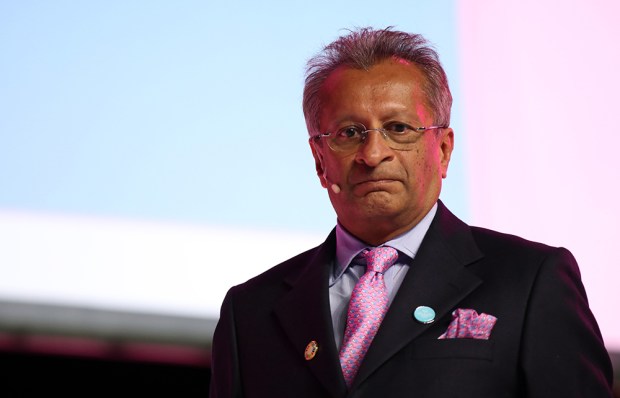If you run an organisation, there are some reporters you definitely don’t want around: Ronan Farrow asking for comment; Madison Marriage or Dan McCrum with a couple of questions; Michael Wolff hanging out on a sofa taking notes. Michael Lewis is not one of those reporters. If he wants to spend time with you, you are about to be lionised as a decent person who sees just a bit more clearly than the fools who run the system of which you are a part, which will make you wildly rich (unless you’re an academic or a public servant) and famous. When Michael Lewis calls, people answer.
When Zeke Faux calls, they often don’t. A reporter for Bloomberg, Faux spends a lot of Number Goes Up being given the runaround by the management team of Tether, a stablecoin (a crypto token pegged to the US dollar) that he suspects of misleading customers about the depth of its reserves. In the end, Giancarlo Devasini, the pugnacious former plastic surgeon who serves as the company’s CFO, sends him a message that reads, in its entirety: ‘Bees don’t waste their time explaining to flies that honey is better than shit.’ In an attempt to get closer to understanding Tether, Faux turns to Sam Bankman-Fried, the wunderkind running the ostentatiously squeaky clean crypto exchange, FTX. Bankman-Fried, distractedly, expresses his confidence in Tether. Which is not what Faux needs for the book he has set out to write.
Lewis, at around the same time, receives a phone call from a friend unnamed in his book but since revealed to be Brad Kutsuyama, one of his previous subjects. Kutsuyama is considering a business deal with Bankman-Fried and wants Lewis’s judgment of him. Lewis knows instantly that he has found the subject of his next book. He spends a lot of time in Bankman-Fried’s company and with his associates and acolytes, hearing all about how much money FTX is making and what he intends to do with it. And then FTX implodes, and Bankman-Fried is charged with probably the largest financial crime in the history of the world. Which is not what Lewis needs for the book he has set out to write.
Lewis’s Going Infinite and Faux’s Number Goes Up have been set up as rivals, not least by their authors. Faux describes Lewis interviewing Bankman-Fried on stage at Crypto Bahamas in 2022 as ‘a prep school headmaster… presenting a prize to his star pupil’. More damagingly: ‘His questions [were] so fawning, they seemed inappropriate for a journalist… I started to question whether Lewis was really writing a book, or if FTX had paid him to appear.’ For his part, Lewis has characterised Faux’s remarks as an attempt to ‘torpedo’ Going Infinite, and Faux himself as arguably more ‘skeevy’ than Bankman-Fried.
The books are better seen as complements. Number Goes Up is an appalled, Wolfe-ian look at the barely concealed cynicism and grift that fuelled and continue to fuel cryptocurrency’s vast speculative bubble. ‘Number go up technology,’ Dan Held of the crypto exchange Kraken tells an audience early on, ‘is a very powerful piece of technology.’ Powerful in terms of parting fools from their money, certainly. The section in which Faux goes to considerable effort to purchase a Bored Ape NFT in order to access a conference is grimly comic. Powerful in terms of distorting behaviour too. No one comes out of this well, from Tony Blair and Bill Clinton cosying up to Bankman-Fried to an endless parade of celebrities (Tom Brady, Gisele Bündchen, Jimmy Fallon and Taylor Swift – except in her case Bankman-Fried never completed the paperwork) shilling for crypto. And also powerful in the way it facilitates criminality. Faux visits a ‘pig-butchering’ site in Cambodia, a compound where imprisoned trafficked workers run scams to earn their gang-masters Bitcoin. In this world, Bankman-Fried initially looks like a hero rather thana villain. Faux is just as susceptible to his patter as anyone else.
Lewis starts with Bankman-Fried and works outwards. His first 192 pages are genuinely fascinating. He watches his hero at the height of his power taking a video call with Anna Wintour, who wants him to attend and sponsor the Met Ball. Bankman-Fried wants to concentrate on the video game he continues to play throughout the conversation. Wintour takes his noncommittal grunts and ‘yup’s as assent, and she and Condé Nast are outraged when the date comes round and without notice he fails to show up.
Then Lewis recounts the start of Bankman-Fried’s career at the secretive trading firm Jane Street Capital. Jane Street demanded a very specific set of skills: the ability to make weighted bets on uncertain outcomes against the clock in environments where the rules kept changing; where life was a series of constant rebalancing of probabilities and judgments about probable outcomes. Bankman-Fried’s social awkwardness and ADHD equipped him perfectly for this. He took half the lessons Jane Street taught (the ones about arbitraging rapidly mutating markets, not the ones about risk management) to set up Alameda Research (‘if you named your company We Do Cryptocurrency Bitcoin Arbitrage Multinational Stuff, no one’s going to give you a bank account’) to enjoy the same success in the then-emerging crypto markets. FTX was a by-product of Alameda, a generalised exchange that became more successful and more profitable than the fund itself.
Bankman-Fried insisted that Alameda would be a tool for Effective Altruism. EA is a philosophy for maximising the utility a person has. If you can earn substantial money by working in finance, runs the argument, then rather than (for example) training as a doctor and benefitting society directly, you should earn the cash and then donate it to hire multiple doctors. So, in effect, in the crypto gold rush, FTX would make safe, reliable money selling shovels and then use it for good works. EA’s trademark mixture of humourless self-righteousness and over-confidence about predicting longterm second- and third-order consequences dovetailed with Bankman-Fried’s own blindspots.
Part of what happened is not in dispute. Customers’ money, which should have been held securely in FTX, was instead held in Alameda, and when there was a run on FTX’s tokens (equivalent to its stock) and FTX needed money for liquidity, it had disappeared. Precisely how that happened and who was to blame is now being hashed out in a Lower Manhattan courthouse. But the two authors limn the competing narratives. Faux’s version is that there was deliberate fraud. He does not say so explicitly, but clearly believes that Bankman-Fried’s expressed Effective Altruism was, or at least became, insincere and itself part of a cover for the fraud.
Bankman-Fried’s own version, as he planned to express it to Congress (he was arrested before he could testify) was ‘I fucked up.’ A contraction in the market had forced FTX to make a margin call, and Alameda as a participant in the market had been insufficiently liquid to meet that call. Lewis is if anything more bullish than Bankman-Fried himself. His conclusion – after rushing through the collapse in 18 pages – is that FTX was a perfectly going concern that was forced into liquidation by its lawyers with the collusion of the bankruptcy courts.
He reserves particular scorn for John Ray, the imposed CEO charged with winding the company up, as an ‘amateur archaeologist’ who doesn’t understand what he’s dealing with – and scores some palpable hits here. But not all of his judgments have aged well. ‘[Bankman-Fried’s] mom and dad… had basically zero interest in money’ raises an eyebrow, now that we know Joseph Bankman emailed his son complaining that his own $200,000 salary from FTX should have been $1million. A lot of people would have to be wrong for Lewis to be right. But the accusations that he is simply credulous are wide of the mark, and he raises enough sharp questions for the reader to finish the book less sure of Bankman-Fried’s guilt than at the start.
Both books recount the end of an era. Crypto was born of a specific macro-economic climate, the low interest rates after the global financial crisis, when capital sloshed around the world looking for returns. Hence the bubble in art prices; hence venture capital firms funding middle-class lifestyles by giving away start-up services below cost; hence crypto speculation appearing a painless one-way bet. Now that interest rates have risen again, all this is melting away. In the case of crypto, not before time.
Got something to add? Join the discussion and comment below.
Get 10 issues for just $10
Subscribe to The Spectator Australia today for the next 10 magazine issues, plus full online access, for just $10.
You might disagree with half of it, but you’ll enjoy reading all of it. Try your first month for free, then just $2 a week for the remainder of your first year.














Comments
Don't miss out
Join the conversation with other Spectator Australia readers. Subscribe to leave a comment.
SUBSCRIBEAlready a subscriber? Log in